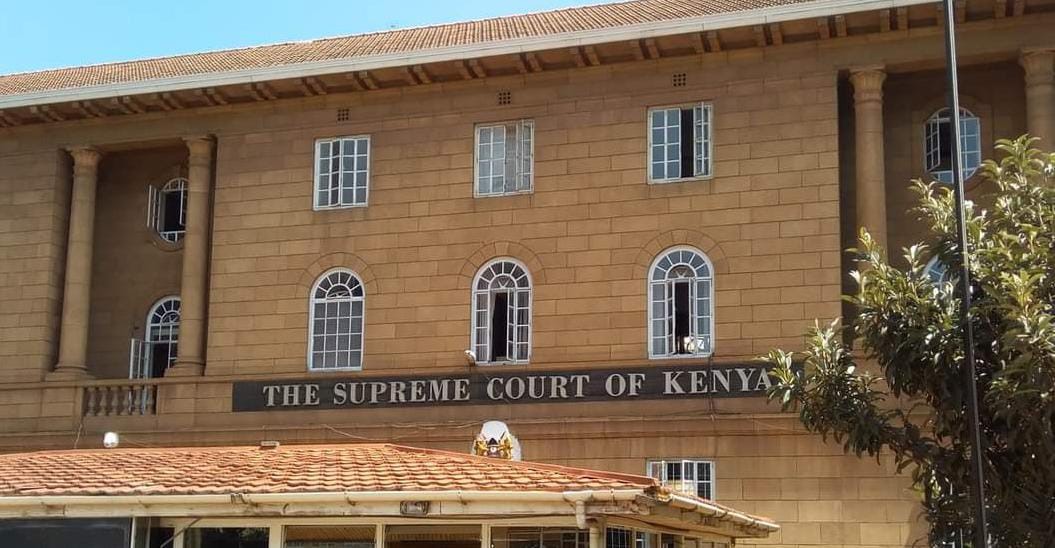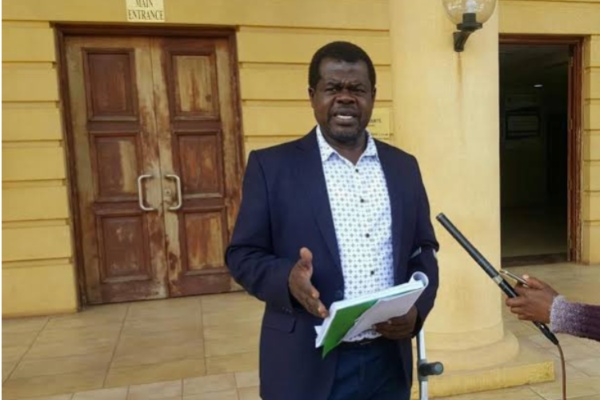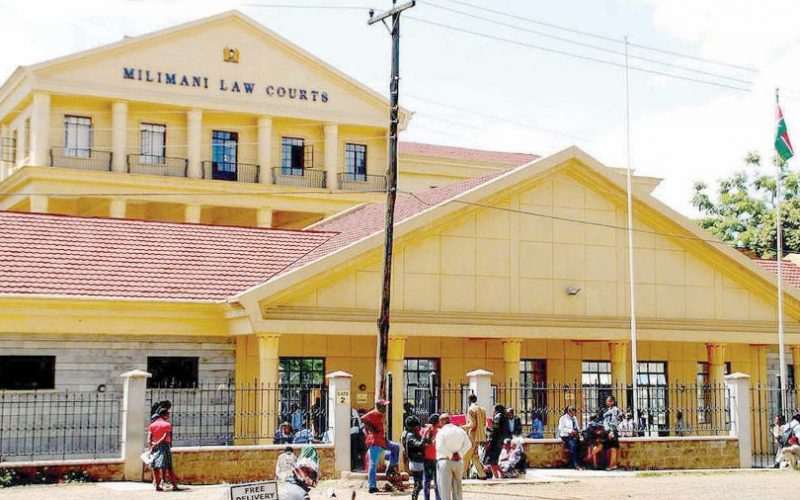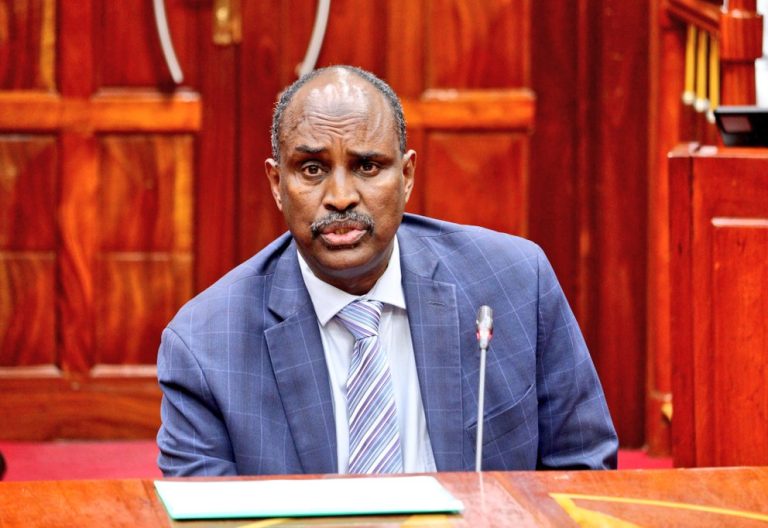Supreme Court certifies Omtatah’s appeal against Finance Act urgent

The Supreme Court has certified as urgent an appeal challenging the implementation of the Finance Act 2023 lodged by Busia Senator Okiya Omtatah.
Certifying the urgency of the suit, Lady Justice Njoki Ndung’u said the appeal by Omtatah raises serious constitutional issues that need to be addressed expeditiously.
“I have read the appeal application, and it certifies trying by this court. I hereby direct the appellants to serve the respondents with the suit papers within seven days from August 8,” Justice Ndung’u ordered.
The directives by the Supreme Court come after Omtatah challenged the order of the Court of Appeal that allowed the implementation of the new tax.
Omtatah and four other petitioners want the top court to quash the decision by a three-judge bench of the appellate court that allowed the National Treasury’s plan to raise more taxes to implement the Ksh3.6 trillion budget.
Omatath and his co-petitioners in the appeal say they are dissatisfied with the decision rendered by Court of Appeal Judges Mohamed Warsame, Kathurima M’noti, and Hellen Omondi
“Omtatah, Eliud Matindi, Benson Otieno, and Blair Oigoro, being dissatisfied with the entire ruling of the Court of Appeal Warsame, M’noti, and Omondi, given at Nairobi on July 28, 2023,” read the appeal papers
Omtatah’s demands
The Busia Senator now wants the Supreme Court to intervene and suspend the further implementation of the new tax law pending the determination of his law at the High Court, which is challenging its legality.
Omtatah approached the apex court after appellate judges lifted an order suspending the Finance Act, 2023.
While vacating the orders, the judges concurred with Treasury CS Njuguna Ndung’u and Attorney General Justin Muturi that there will be serious irreversible economic consequences if the stay of the conservatory orders is not granted.
“The application by (the state) has merit, and the same is allowed as prayed with the effect that the order made on July 10, 2023, suspending the Finance Act 2023 and the order prohibiting the implementation of the Finance Act 2023, be and are hereby lifted pending the hearing and determination of the appeal,” the three judges ruled.
Justice Warsame’s bench set aside the ruling by Justice Mugure Thande of the High Court, which had extended the Finance Act’s suspension, arguing that she erred by freezing the implementation of the new taxation law.

Court of Appeal’s stance
According to the Court of Appeal judges, they found that Kenyans can get refunds in the event the court finds that the Act is unconstitutional.
“We are persuaded that the applicants have satisfied the twin principles for the grant of the orders sought, and that public interest tilts in favour of setting aside the conservatory orders by the trial judge,” the bench ruled.
The court has, however, granted the AG and CS Treasury 14 days to file their appeals in the matter and all parties to file their submissions within 30 days.
Judges Warsame, M’noti, and Omondo said that the appeal will be heard and determined within 60 days.
The Court of Appeal set aside the orders after CS Ndungu argued that the suspension of the Act is affecting government operations and will cause a major budgetary crisis.
“The country would incur irreversible damage if the conservatory orders were not suspended,” the AG told the court.
They further argued that if the orders were not vacated, the state would lose about Ksh211 billion in the current financial year.
Further, Ndung’u had informed the Court of Appeal that the suspension orders in place had made it difficult for the Kenya Kwanza administration to implement the 2023–2024 budget as planned, and some of the major projects would have to be halted if the government was not allowed to raise revenue as proposed in the bill.
The respondents, led by Busia Senator Okiya Omtatah, argued that the reimbursement of the tax is impossible, providing an example of the 16 per cent fuel levy.
In their decision, the court of appeal judges said that the Finance Act has a life span of 90 days, after which the next budgetary cycle is set in motion.
“We have no doubt in our minds that the Finance Act and the Appropriation Act are interdependent. While the former provides for the generation of the funds, the latter provides for the expenditure. There can be no expenditure where the mode of generation of the funds has not been provided for,” the judges ruled.

Ndung’u’s estimation
They further noted that Treasury CS Ndung’u had estimated the generation of revenue to the tune of Ksh211 billion with an average daily rate of Ksh 500 million.
“Despite the actual figures being contested, it is certain that revenue was to be collected with the operationalization of the Act, ” the judges noted.
The judges further observed that out of the 102 provisions, only 21 of them had a different commencement date of September 1, 2023, and January 1, 2024.
“That means that the bulk of the revenue collection measures contained in the Act took effect on July 1, 2023,” they stated in their ruling.
The bench further said that taxation is a continuous and annual mechanism, and members of the public can get a rebate for overpaid taxes and levies when making subsequent tax payments.
Secondly, the judges held that since the petitions challenge both the entire Act and the specific provisions, the court can consider suspending the specific provisions whose implementation has an irreversible effect and cannot be refunded.
“This is in contradistinction with a blanket suspension of the Act. Thirdly, the Appropriation Act, which was enacted against the backdrop of the Finance Act, is in place and is not under constitutional challenge.
“Lastly, had the trial judge considered the substantial and irreversible public interest in this matter, the court would have been hesitant to suspend the whole Act,” the judges ruled.








